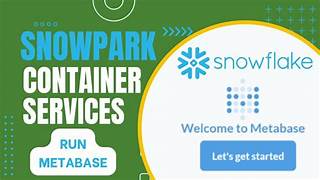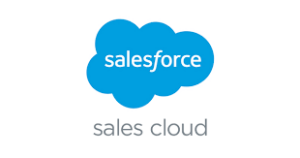Snowflake announced on Thursday the general availability of Snowpark Container Services, enabling customers to securely deploy and manage models and applications, including generative AI, within Snowflake’s environment.
Initially launched in preview in June 2023, Snowpark Container Services is now a fully managed service available in all AWS commercial regions and in public preview in all Azure commercial regions.
Containers are a software method used to isolate applications for secure deployment. Snowflake’s new feature allows customers to use containers to manage and deploy any type of model, optimally for generative AI applications, by securely integrating large language models (LLMs) and other generative AI tools with their data, explained Jeff Hollan, Snowflake’s head of applications and developer platform.
Mike Leone, an analyst at TechTarget’s Enterprise Strategy Group, noted that Snowpark Container Services’ launch builds on Snowflake’s recent efforts to provide customers with an environment for developing generative AI models and applications.
Sridhar Ramaswamy became Snowflake’s CEO in February, succeeding Frank Slootman, who led the company through a record-setting IPO. Under Ramaswamy, Snowflake has aggressively added generative AI capabilities, including launching its own LLM, integrating with Mistral AI, and providing tools for creating AI chatbots.
“There has definitely been a concerted effort to enhance Snowflake’s capabilities and presence in the AI and GenAI markets,” Leone said. “Offerings like Snowpark help AI stakeholders like data scientists and developers use the languages they prefer.”
As a result, Snowpark Container Services is a significant new feature for Snowflake customers.
“It’s a big deal for the Snowflake ecosystem,” Leone said. “By enabling easy deployment and management of containers within the Snowflake platform, it helps customers handle complex workloads and maintain consistency across development and production stages.”
Despite the secure environment provided by Snowflake Container Services, it was revealed in May that the login credentials of potentially 160 customers had been stolen and used to access their data. However, Snowflake has stated there is no evidence that the breach resulted from a vulnerability or misconfiguration of the Snowflake platform. Prominent customers affected include AT&T and Ticketmaster, and Snowflake’s investigation is ongoing.
New Capabilities
Generative AI can transform business by enabling employees to easily work with data to inform decisions and making trained experts more efficient.
Generative AI, combined with an enterprise’s proprietary data, allows users to interact with data using natural language, reducing the need for coding and data literacy training. Non-technical workers can query and analyze data, freeing data engineers and scientists from routine tasks.
Many data management and analytics vendors are focusing on developing generative AI-powered features. Enterprises are building models and applications trained on their proprietary data to inform business decisions.
Among data platform vendors, AWS, Databricks, Google, IBM, Microsoft, and Oracle are providing environments for generative AI tool development. Snowflake, under Slootman, was less aggressive in this area but is now committed to generative AI development, though it still has ground to cover compared to its competitors.
“Snowflake has gone as far as creating their own LLM,” Leone said. “But they still have a way to go to catch up to some of their top competitors.”
Matt Aslett, an analyst at ISG’s Ventana Research, echoed that Snowflake is catching up to its rivals. The vendor initially focused on traditional data warehouse capabilities but made a significant step forward with the late 2023 launch of Cortex, a platform for developing AI models and applications. Cortex includes access to various LLMs and vector search capabilities, marking substantial progress.
The general availability of Snowpark Container Services furthers Snowflake’s effort to foster generative AI development. The feature provides users with on-demand GPUs and CPUs to run any code next to their data. This enables the deployment and management of any type of model or application without moving data out of Snowflake’s platform.
“It’s optimized for next-generation data and AI applications by pushing that logic to the data,” Hollan said. “This means customers can now easily and securely deploy everything from source code to homegrown models in Snowflake.”
Beyond security, Snowpark Container Services simplifies model management and deployment while reducing associated costs. Snowflake provides a fully integrated managed service, eliminating the need for piecing together various services from different vendors. The service includes a budget control feature to reduce operational costs and provide cost certainty.
Snowpark Container Services includes diverse storage options, observability tools like Snowflake Trail, and streamlined DevOps capabilities. It supports deploying LLMs with local volumes, memory, Snowflake stages, and configurable block storage. Integrations with observability specialists like Datadog, Grafana, and Monte Carlo are also included.
Aslett noted that the 2020 launch of the Snowpark development environment enabled users to use their preferred coding languages with their data. Snowpark Container Services takes this further by allowing the use of third-party software, including generative AI models and data science libraries.
“This potentially reduces complexity and infrastructure resource requirements,” Aslett said.
Snowflake spent over a year moving Snowpark Container Services from private preview to general availability, focusing on governance, networking, usability, storage, observability, development operations, scalability, and performance.
One customer, Landing AI, used Snowpark Container Services during its preview phases to develop LandingLens, an application for training and deploying computer vision models.
“[With Snowflake], we are increasing access to AI for more companies and use cases, especially given the rapid growth of unstructured data in our increasingly digital world,” Landing AI COO Dan Maloney said in a statement Thursday.
Future Plans
With Snowpark Container Services now available on AWS, Snowflake plans to extend the feature to all cloud platforms. The vendor’s roadmap includes further improvements to Snowpark Container Services with more enterprise-grade tools.
“Our team is investing in making it easy for companies ranging from startups to enterprises to build, deliver, distribute, and monetize next-generation AI products across their ecosystems,” Hollan said.
Aslett said that making Snowpark Container Services available on Azure and Google Cloud is the logical next step. He noted that the managed service’s release is significant but needs broader availability beyond AWS regions.
“The next step will be to bring Snowpark Container Services to general availability on other cloud platforms and demonstrate to potential customers that Snowpark Container Services is equal in terms of security, reliability, and integration with other Snowflake applications and features,” Aslett said.












